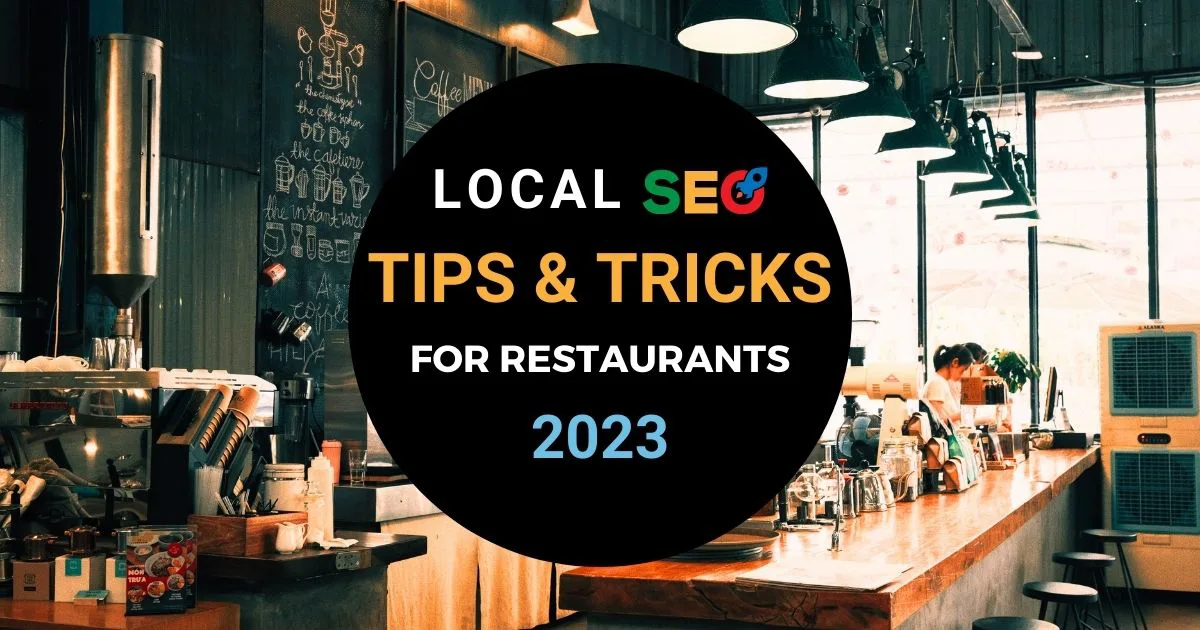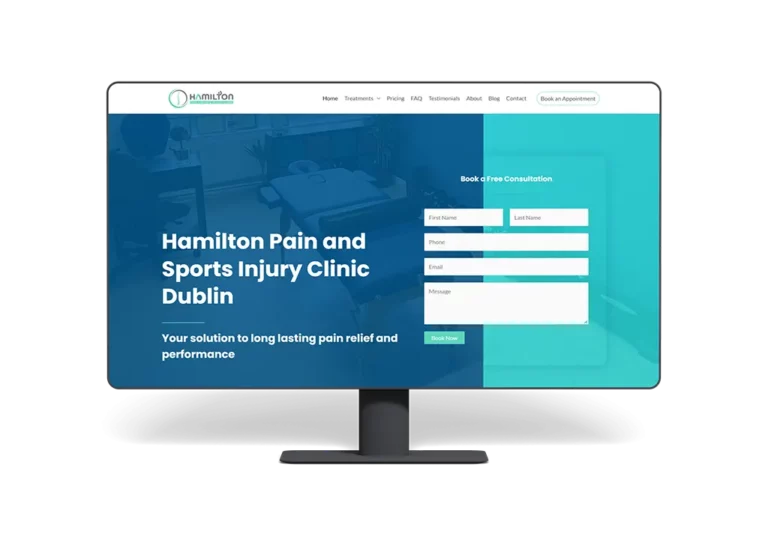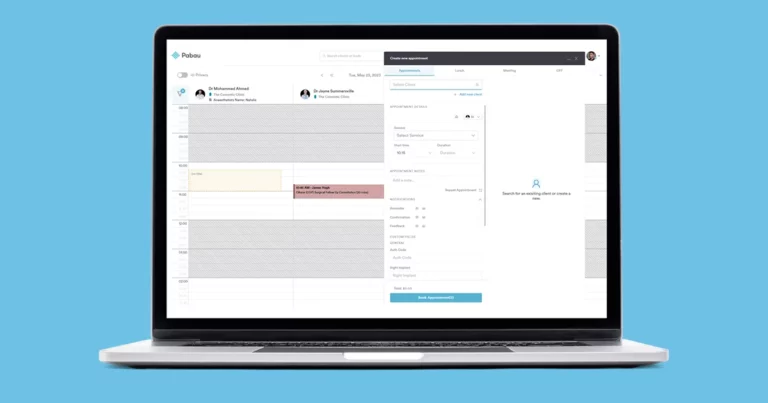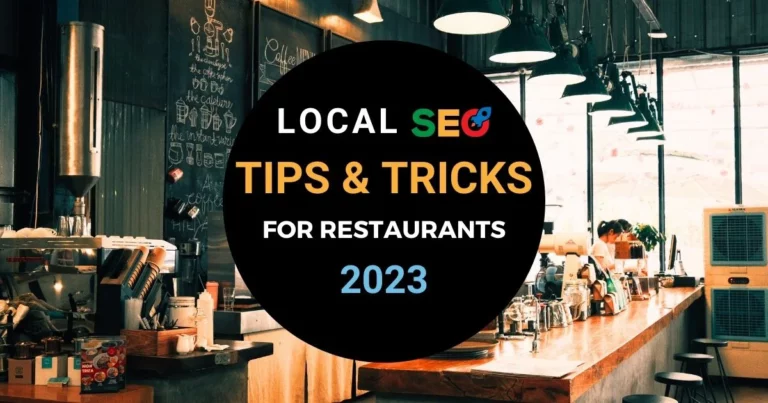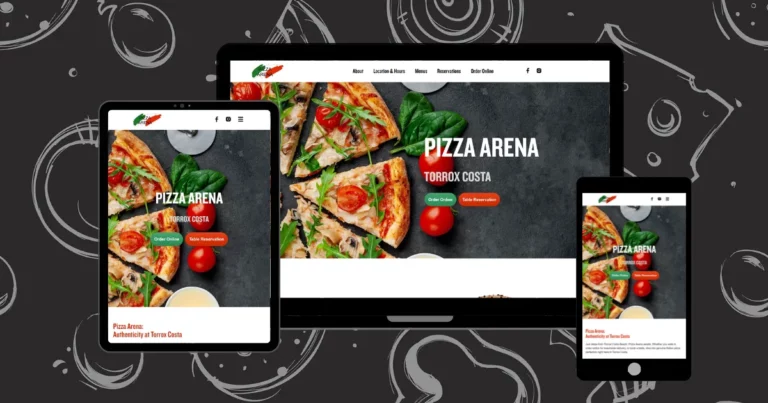1. Claim Your Google Business Profile
Your restaurant’s online presence starts with its Google Business profile. This invaluable tool ensures you pop up when hungry diners search for restaurants near them.
When customers conduct a local search, Google prominently displays Google Business profile in the results, often before the usual search results. This section is referred to as the local ‘3-pack’, showcasing local businesses related to the search query. The visibility is priceless, especially for restaurants aiming to attract local diners. Your Google Business profile acts as an online storefront. Display tantalizing photos of your restaurant, both interior and exterior, as well as drool-worthy dishes. Continuously update operation hours, especially during special holidays or events, ensuring patrons have accurate information.
TIP: Categorize your restaurant accurately on Google Business profile. If you’re a specialized establishment like a vegan bistro, specify this to attract the right clientele. Proper categorization directs highly relevant traffic to your profile, ensuring your vegan patrons aren’t inadvertently searching for steak.
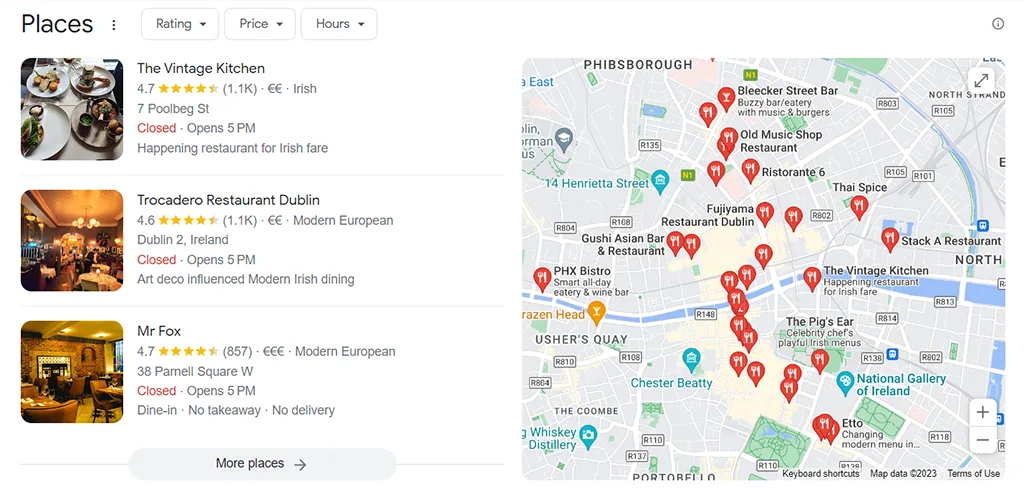
2. Encourage Reviews and Respond to Them
Online reviews are the digital age’s word of mouth. A single outstanding review can have more impact than numerous ads.
In an era of online transparency, positive reviews can significantly enhance your restaurant’s image, encouraging more customers to walk through your doors. Reviews play a dual role, influencing customer perception while simultaneously boosting your local SEO ranking. Google factors in the number and quality of reviews when determining your Google Business profile’s position. Engage with your patrons by actively responding to reviews, both positive and negative. This interaction shows prospective customers that you value feedback and are committed to providing impeccable service. Address any negative comments professionally, using them as constructive feedback and a platform for improvement.
TIP: To boost the number of reviews, place subtle reminders throughout your restaurant. A small card accompanying the bill, or tastefully designed table tents can encourage satisfied patrons to leave their feedback online.

3. Optimize for Mobile
Smartphones have become an extension of us. We search, explore, and often decide based on the information at our fingertips.
In today’s fast-paced world, when hunger strikes, potential diners immediately turn to their smartphones, searching for nearby eating options. This behavior underscores the importance of a mobile-optimized website for restaurants. A site designed for mobile ensures easy navigation, fast loading times, and a pleasant user experience, no matter the device. Such user-centric designs are favored by search engines, leading to improved ranking in search results. Thus, a mobile-friendly design not only captures the immediate, on-the-go traffic but also influences your broader online visibility.
TIP: Regularly audit your website’s mobile performance. Tools like Google’s Mobile-Friendly Test provide actionable insights. Ensuring your site’s responsiveness keeps it appealing to both users and search engines.

5. Leverage Local Backlinks
Backlinks are crucial for SEO, and local backlinks are especially beneficial for local businesses like restaurants.
Backlinks are essentially votes of confidence from other websites. When a reputable local website links back to your restaurant’s website, search engines view it as an endorsement, boosting your credibility and SEO ranking. To acquire local backlinks, consider partnering with local influencers or bloggers for reviews. Attend or sponsor local events and get mentioned (and linked) on their websites. You can also get listed in local directories or join local business associations that offer listing opportunities. Besides boosting your SEO, these tactics also enhance your visibility and engagement in the local community, fostering trust and credibility.
TIP: Regularly audit your backlinks to ensure their quality. A plethora of low-quality or spammy links can harm your SEO. Tools like Ahrefs or Moz can help in tracking and analyzing your backlinks.
6. Engage on Social Media
Your restaurant’s presence on social platforms can indirectly influence your local SEO.
While social media signals aren’t direct ranking factors for search engines, they do play a role in amplifying your restaurant’s online presence. Regularly sharing high-quality content, from mouth-watering images of your dishes to behind-the-scenes looks at your kitchen, can lead to increased engagement and shares. As more users share and link to your content, traffic to your website grows, indirectly boosting your SEO. Moreover, platforms like Facebook have their own search functions. Ensuring your restaurant’s profile is complete, accurate, and regularly updated increases the chances of potential customers finding you on these platforms.
TIP: Engage with local influencers or food bloggers on social media. Their endorsement can quickly boost your restaurant’s reputation and reach in the community, driving both social media traffic and physical footfalls.
7. Create High-Quality, Local Content
Content marketing is a critical component of SEO, and for local businesses, this means creating content that resonates with the local audience.
Local content gives restaurants an opportunity to showcase their understanding and involvement in the community. This could range from blog posts about local events or festivals to interviews with local celebrities who’ve dined at your establishment. For instance, if there’s a major annual festival in your town, consider writing a post about special dishes you’re offering in its celebration. Or perhaps share stories about local farmers or markets from where you source your fresh ingredients. Such content not only bolsters your local SEO by keeping your website fresh and relevant but also serves as a bridge, strengthening the bond between your restaurant and its community.
TIP: Consider adding a blog section to your restaurant’s website. Regularly publish posts related to local events, food culture, or even highlight customer stories. Encourage guest posts from local influencers or food critics to add variety and authenticity.
8. Ensure Consistent NAP (Name, Address, Phone Number)
Consistency in how you present your restaurant’s details online is critical for local SEO.
Search engines are more than just platforms; they aim to provide users with the most accurate and relevant information. When your restaurant’s name, address, and phone number (NAP) are consistent across all platforms and directories, search engines gain confidence in your business’s legitimacy. This consistency should span across your website, social media profiles, local directories, and any other platform where your restaurant is listed. Inconsistent information can lead to confusion, both for search engines and potential customers. Suppose someone finds a wrong number and can’t make a reservation; that’s a lost customer, and potentially a negative review.
TIP: Periodically audit all platforms where your restaurant’s information is listed. Use tools or services that can help you manage and maintain consistent NAP data across multiple platforms.
9. Optimize Your Website’s Technical SEO
While much of local SEO focuses on content and external signals, the technical health of your website is equally vital.
Technical SEO refers to the optimization efforts that don’t involve content – these are more about the structure and foundation of your website. This includes ensuring fast page loading speeds, implementing a clear and logical URL structure, optimizing meta tags for local keywords, and ensuring your website is mobile-friendly. Additionally, setting up an XML sitemap can help search engines more efficiently crawl and index your site. Especially for restaurants, where immediate decisions are made, a site that loads swiftly and provides information clearly can make the difference between a reservation and a missed opportunity.
TIP: Regularly conduct technical SEO audits using tools like Google Search Console. Address issues promptly to ensure your website remains in optimal health, providing a seamless user experience.

10. Engage in Community Outreach
Community involvement goes beyond just business—it helps root your restaurant in the local ecosystem.
Engaging in community outreach efforts, such as sponsoring local events, hosting community gatherings, or participating in charity drives, places your restaurant at the forefront of local consciousness. Not only do these efforts endear your brand to locals, but they also present numerous opportunities for valuable local backlinks and mentions in local press or publications. Building a strong, genuine relationship with the community translates to an enhanced local reputation, both offline and online. Remember, every local mention, backlink, or social media shoutout works in tandem to solidify your restaurant’s local SEO standings.
TIP: Collaborate with local businesses for joint events or promotions. This mutual cooperation can amplify local visibility, as customers from one business get introduced to the other.
11. Leveraging Schema Markup for Enhanced Visibility
Schema Markup, often just called “Schema,” is a form of microdata that can be added to your website’s code. This semantic vocabulary helps search engines understand the content on your website more clearly and thus provides more accurate search results for users. When properly implemented for restaurants, Schema can drastically improve your listings in search results by adding rich snippets – those enticing bits of information that can show menu items, prices, ratings, and more, right from the search results page.
For restaurants, Schema is especially invaluable. When potential customers search for dining options, they’re often looking for specific pieces of information: your operational hours, menu, location, reviews, and perhaps even special events or daily specials. Schema allows you to highlight this information directly in search results, making it easier for potential patrons to find exactly what they’re looking for without even having to click on your website. For instance, having a “Menu” schema can provide a direct link to your menu, right from the search page. A “Ratings” schema can showcase user reviews, assuring potential customers of the quality of your dining experience.
TIP: Incorporate Schema Markup into your website’s backend. If you’re using a CMS like WordPress, there are plugins available that can simplify this process. Regularly test and update your Schema to ensure it’s providing accurate, up-to-date information.
Summary and Conclusion
In today’s digital age, restaurants have an unprecedented opportunity to tap into local markets by harnessing the power of local SEO. Local SEO, at its core, is about ensuring that your restaurant is visible to those in its immediate vicinity when they’re looking for dining options. By focusing on targeted local keywords, ensuring NAP consistency, leveraging local backlinks, and creating high-quality, localized content, restaurants can effectively place themselves at the forefront of local search results.
The importance of engaging with the community, both online via social media and offline through community outreach, can’t be overstated. It serves a dual purpose: forging stronger bonds with the local clientele and reinforcing online visibility through mentions, shares, and backlinks. Technically sound websites, which are mobile-responsive, have clear URL structures, and load swiftly, ensure that when potential customers find you, they experience no friction in accessing the information they need.
Additionally, platforms like Google Business provide a direct avenue to showcase your restaurant’s best features to the local audience. Accurate and captivating listings on these platforms, complete with reviews, images, and relevant information, can be pivotal in a potential customer’s decision-making process.
In conclusion, local SEO is more than just a technical endeavor. It’s about weaving your restaurant into the local digital and physical fabric, ensuring it’s the go-to choice for residents and visitors alike. The combined efforts of optimizing both on-page and off-page elements, paired with genuine community engagement, will not only boost a restaurant’s online visibility but also its reputation and trustworthiness in the community.
Every interaction, be it a diner leaving a positive review, a local blogger mentioning your weekend special, or a social media post being shared, contributes to the intricate tapestry of local SEO. In this digital era, where decisions are often made with a quick search on a smartphone, ensuring your restaurant stands out locally online is not just an advantage; it’s a necessity. Embrace the tools and strategies at your disposal, engage authentically with your community, and let local SEO be the beacon that guides more customers to your restaurant’s doors.

